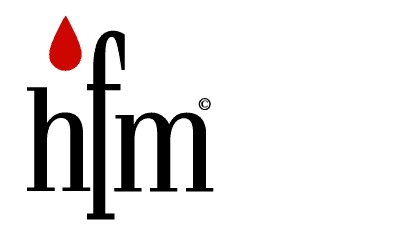National Women's Conference History
The National Conference for Women with Hemophilia and Rare Factor Deficiencies was established to address the unique challenges faced by women and girls in the bleeding disorders community. Historically, women with hemophilia and other rare bleeding disorders were often underdiagnosed or overlooked, as bleeding disorders, especially hemophilia, were primarily associated with men. However, as awareness and understanding of these conditions grew, so did the need for a dedicated space where women could connect, share experiences, and access specialized education and support.
Recognizing this need, the Hemophilia Foundation of Michigan spent two years raising funds and planning before we launched the inaugural conference in 2018, creating the first national event specifically designed for women affected by hemophilia. Since then, the conference has grown into a premier gathering, bringing together patients, caregivers, healthcare professionals, and advocates from across the country.
Each year, the conference provides a comprehensive program covering medical advancements, advocacy efforts, mental health, self-care, and personal empowerment. It also fosters a strong sense of community, allowing attendees to share their journeys, learn from experts, and support one another in navigating the complexities of living with a bleeding disorder.
Over the years, the conference has played a pivotal role in advancing research, improving access to care, and amplifying the voices of women in the bleeding disorders community. Through education, collaboration, and advocacy, it continues to empower women to take charge of their health and become leaders in the movement for greater awareness and equity in care.
As we look to the future, the National Conference for Women with Hemophilia and Rare Factor Deficiencies remains committed to fostering a supportive and informative environment where every woman’s voice is heard, and every journey is valued.
National Women's Conference Evolution
In assessing the evolution of the conference, the following themes have emerged:
2018
Recognizing similarities through the sharing of individual stories
Held in Grand Rapids, MI – Attended by 103 women
2019
Contending with naming, representation, and the debate surrounding “carrier” versus “woman with hemophilia”
Held in Detroit, MI: 150 women from 37 states and DC
2020
Moving the conversation to advocacy and collectively creating a voice
Held Virtually: 123 women from 35 states as well as Puerto Rico, Canada, Iran, India, Australia, and New Zealand
2021
Discussing the importance of research, embracing the need for health equity, and addressing medical inequities
Held Virtually: 184 women from 38 states as well as Bangladesh, Guatemala, Puerto Rico, Australia, and New Zealand
2022
Examining the structural problems that explain misdiagnosis and delay in care
Held in Detroit, MI and Virtual: 184 women (85 virtually, 99 in person) from 35 states as well as New Zealand
2023
Embracing a more refined understanding of the multifaceted challenges faced by women and recognizing a growing demand for specialized care, nuanced research, and a more comprehensive approach to addressing needs throughout different life stages
Held in Detroit, MI and Virtual: 196 women (47 virtual, 149 in person) from 36 states and Puerto Rico
2024
There is growing awareness of the importance of testing women for hemophilia and rare factor deficiencies, as delays in diagnosis are now recognized as contributing to increased bleeding episodes and a lower quality of life. However, factor levels alone often fail to accurately reflect the symptoms experienced by women. The marginalization and dismissal of women’s symptoms by medical professionals and others are deeply entrenched in gender bias.
Held in Detroit, MI and Virtual: 160 women (30 virtually, 130 in person) from 34 states and Puerto Rico
Misdiagnosis, or the absence of a diagnosis, can lead to inappropriate treatment, delayed care, or even no treatment at all. The best practice model involves establishing multidisciplinary clinics dedicated to women and girls, aiming to enhance early identification—particularly in families with a known history—and to improve overall health management.
Efforts to educate medical professionals, advocate for better care, and raise awareness highlight a growing push for systemic change. This includes a renewed focus on acknowledging women’s experiences and promoting greater participation in patient registries.
